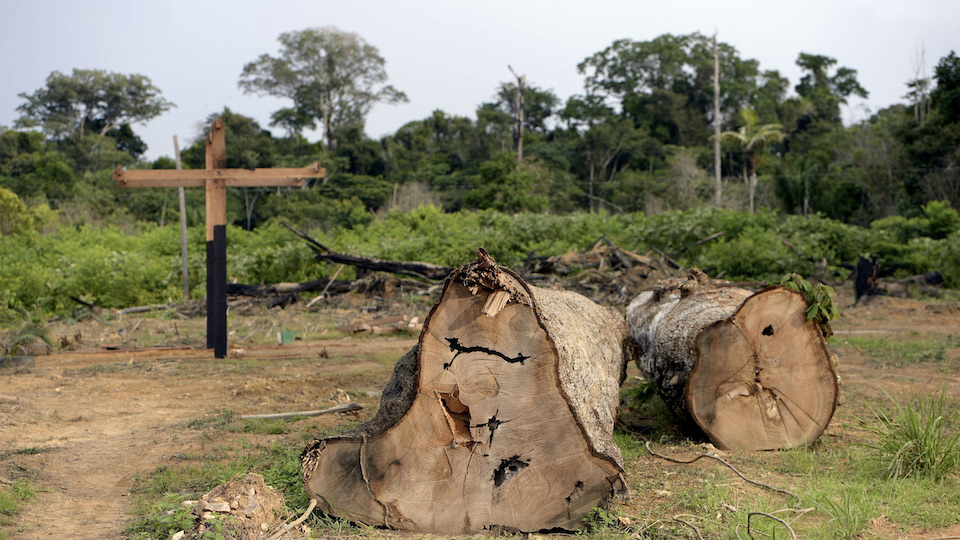227 environmental activists killed worldwide in 2020

Protests against deforestation or dams are life-threatening in many places: last year, at least 227 environmental activists were killed worldwide – more than ever before. This is according to the annual report of the non-governmental organization Global Witness, which was published on Monday.
For the second year in a row, Colombia leads the statistics with 65 environmentalists murdered. After that, the most murders occurred in Mexico (30), the Philippines (29), Brazil (20) and Honduras (17). The organization also registered double-digit case numbers in the Democratic Republic of Congo (15), Guatemala (13) and Nicaragua (12). In addition, environmental activists in many countries are threatened, monitored, arrested and defamed for their work.
In terms of population, Nicaragua was the most dangerous country for environmental activists, followed by Honduras and Colombia.
Global Witness assumes, however, that the actual number of environmentalists killed is significantly higher. Increasing restrictions on freedom of press and other civil liberties led to many cases going unreported. In 2019, 212 environmental activists had been killed worldwide.
Significantly more murders in Africa
Three quarters of the attacks took place in Latin America. In Brazil and Peru, most of the murders occurred in the Amazon region. In Africa, a total of 18 murders were documented – up from seven in 2019. However, it remains difficult to verify cases in Africa, Global Witness said.
Worldwide, most killings were related to protests against deforestation, followed by water and dam construction projects. Many murders were also related to opposition to mining and other resource extraction. Global Witness links about one-third of all murders of environmental activists documented since 2015 to agribusiness and mining.
Attacks on indigenous population
Indigenous people are attacked more often than average when they stand up for their rights – even though they make up only five percent of the world’s population, according to the organization. Such attacks have been documented primarily in Mexico, South and Central America, and the Philippines. However, there have also been murders of indigenous people in Indonesia and Saudi Arabia.
In northern Mexico, for example, indigenous activist Óscar Eyraud Adams was shot dead by unknown persons outside his home last September. The spokesman for the Kumiai people had previously protested against the water shortage in Tecate in the state of Baja California. He accused the state water authority Conagua of allowing the Heineken brewery to use wells without consulting the indigenous population.
On the Philippine island of Panay, nine indigenous people from the Tumandok tribe were murdered in December during a raid by the military and police. 17 other people were arrested. They had been campaigning against a dam project.
However, officials and park rangers are also frequently targeted: in the Democratic Republic of Congo, twelve rangers and a driver were killed last year in a militia attack in Virunga National Park.
Moreover, women were the victims of more than one in 10 murders worldwide. They are often additionally exposed to gender-specific threats such as sexualized violence. Women therefore often face a two-fold challenge: on the one hand, the public commitment to protect their country and the planet. On the other, an often invisible struggle for their right to speak within their communities, because in many parts of the world, women are still excluded from land ownership and from discussions about the use of natural resources.
Those behind the violence against environmental activists were mostly companies, farmers, and sometimes state actors, as well as criminal gangs, paramilitary groups, and rebels.
States and companies must act
Global Witness accuses states of failing to protect human rights. Countries such as Brazil, Colombia and the Philippines have used the Corona pandemic to control their citizens with draconian measures and further restrict civil space. In such societies, he said, attacks on environmental activists are more frequent than in open societies.
The report said the climate crisis is most often associated with its environmental impacts. However, data collected by Global Witness since 2012 has shown that the exploitation of nature is also having an increasingly violent impact on people.
Chris Madden of Global Witness said, “One day, we hope to report an end to the violence against those defending our planet and their land, but until governments get serious about protecting defenders, and companies start putting people and planet before profit, both climate breakdown and the killings will continue.”
The organization calls on states to protect land and environmental activists. Laws that criminalize activists should be abolished. Instead, governments should hold companies accountable.
The United Nations should formally recognize the human right to a safe, healthy and sustainable environment. The EU should require all companies operating there to identify and remedy human rights violations and environmental damage along their value chains.
Finally, the organization also calls on companies to identify, assess, prevent and mitigate human rights violations and environmental damage in their supply chains. They would also have to adopt and implement a zero-tolerance attitude towards reprisals and attacks on land and environmental activists. (dpa / js)